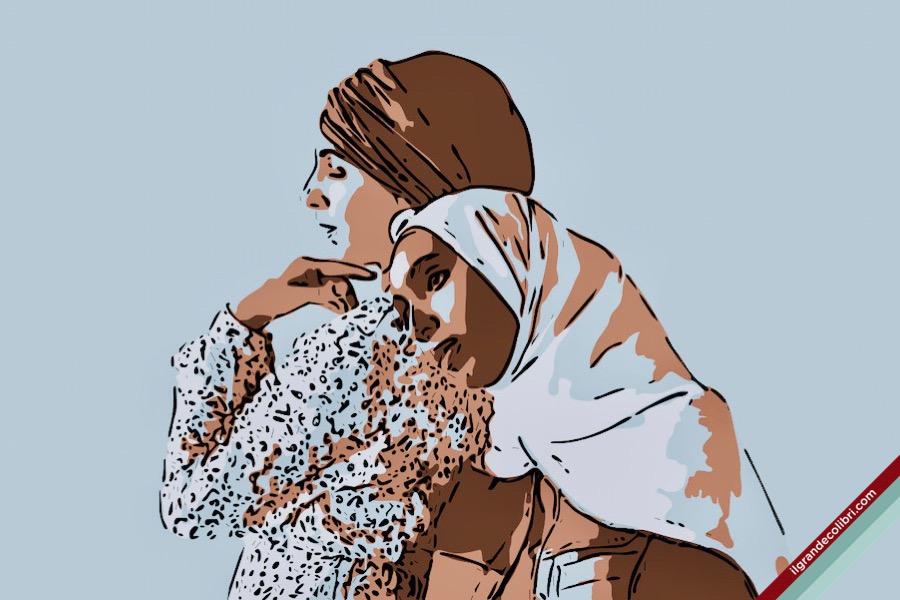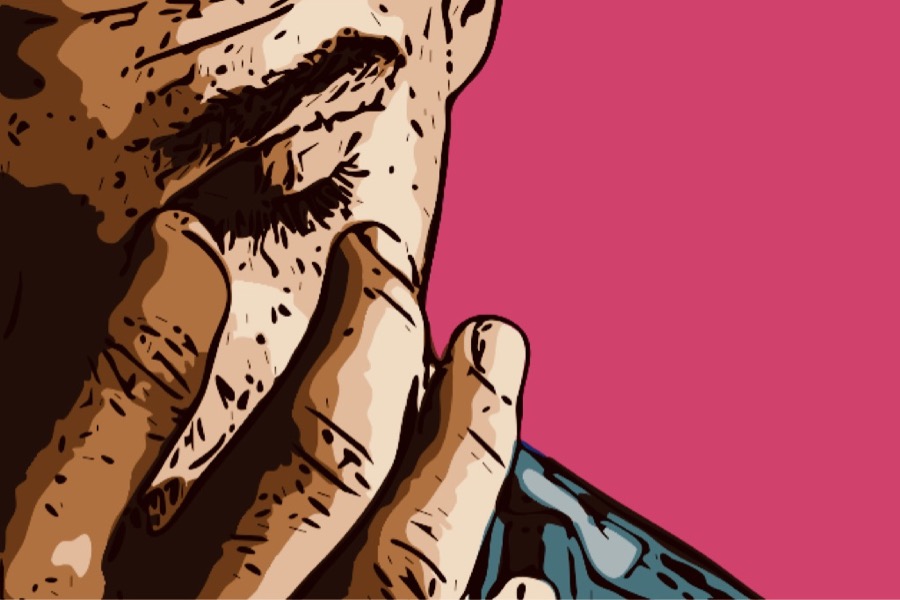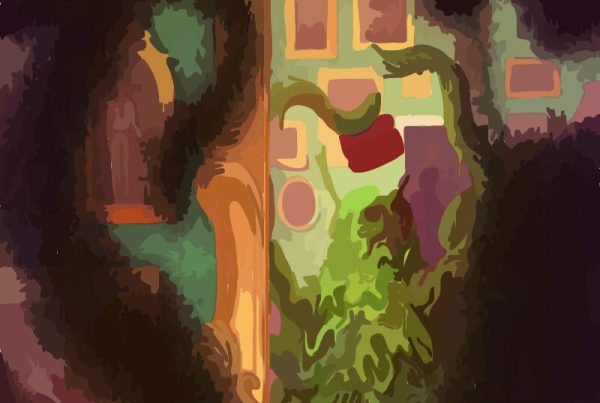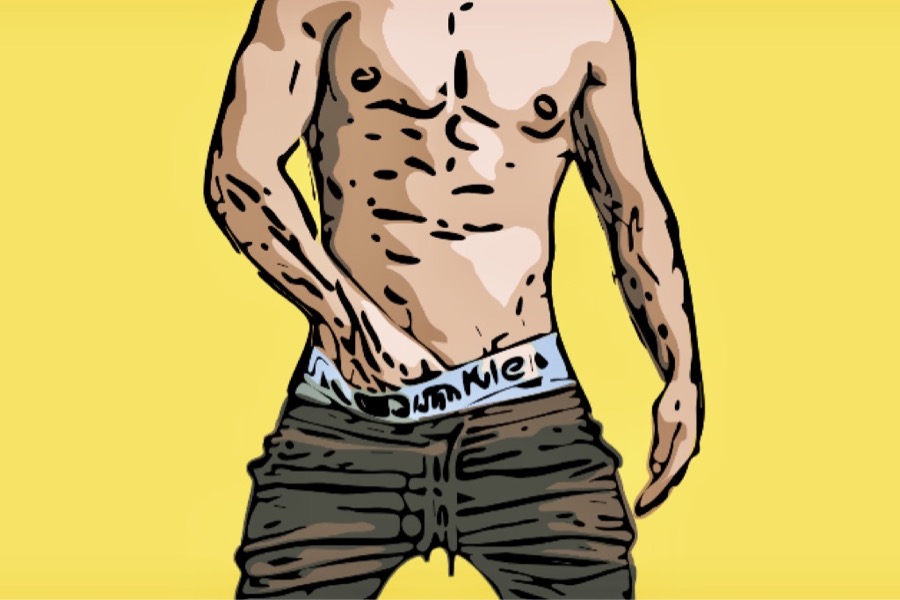“A girl who is not really a girl, who is neither Algerian nor French, neither from Clichy nor Paris, a Muslim I think, but not a good Muslim, a lesbian who has internalized homophobia”: this is how Fatima Daas, a young French writer of Algerian descent, who grew up between Saint-Germain-en-Laye and Clichy-sous-Bois, in the suburbs of Paris, describes herself. Her novel, “La petite dernière” (The Smallest One; Noir sur Blanc 2020, 350 p., €16) is first and foremost the story of a girl growing up in a suburban town where “almost everyone is a Muslim” of African or Maghrebi origin.
It is a tale of the most mundane and daily labours, such as the daily three-hour commute in overcrowded public transportation to get to Paris, and the institutional discrimination that led her to drop out of preparatory school in Humanities despite her talent as a writer. In France, in fact, there are two types of higher education institutions: universities and the “grandes écoles”, more prestigious institutions. After high school top students do not enrol at university, where they can get only a bachelor’s degree, but enter preparatory schools: usually a two-year course that prepares them to take the competitive exam to enter the “grandes écoles”, from which they will then graduate with a master’s degree.

Since preparatory schools are based in high schools, and among these same high schools there is a hierarchy from “worst” to “best” according to their districts, suburban students like Fatima are fish out of water in these establishments. Therefore, when Fatima does an excellent Spanish assignment from home, the professor orders her to confess who helped her. Humiliated, Fatima leaves preparatory school.
A lesbian and a sinner
In this discriminatory environment, Fatima discovers her attraction to girls. She learns about it while having fun with her male friends, insulting the young teacher whom all eyes – her classmates and also hers – are on. She talks about it with an imam, pretending her troubles are those of a supposed “lesbian friend”; she talks about it with a psychologist; with the friend who can tone down embarrassment with a joke. She explores polyamorous dating, and struggles between fear and desire for a committed relationship. Faith provides a comforting perspective to her contradictions. But in relation to that faith, Fatima still feels like a sinner.
The writer – who considers herself an intersectional feminist – indeed stirred controversy when she said in an interview that she considers homosexuality a sin: “I am no one to reform this religion and say it is not a sin”. Fatima refuses to “choose” and claims the possibility of experiencing contradiction and “showing complexity”, of being equally “imperfect” as a Muslim and as a lesbian.
Living complexity
Instead of lashing out at this position, it’s critical to keep two things in mind. One, there is a movement of Muslim people in France who do not see homosexuality as a sin. Two, heed Fatima’s call to look at complexity, because the author – like so many other first- or second-generation young people in France – is discriminated against not just because she is a lesbian. Fatima lives in Clichy-sous-Bois, the city where in 2005 the death of two teenagers fleeing the police sparked a major uprising: in the Parisian suburbs, racially charged police abuse is systematic.
The value of this book lies in how it tells of the many dimensions of injustice suffered by and the complexity of Fatima’s experience: inequalities in the school system; the feeling of estrangement in her trips to Algeria and the situation of the suburbs in France; the contradiction between the volatility of Parisian relationships and the family model learned at home, in which the mother’s life revolves around her daughters. Her position, as a “homophobic” lesbian and a “sinful” Muslim, stems from the need to carve out a space for herself between these contradictory instances.
The LGBTQIA (lesbian, gay, bisexual, transgender, queer, intersex, and asexual) movement cannot distance itself from voices like Fatima’s, which embody the complexity and intersection of different paths of emancipation, which perhaps in the current framework can only be “imperfect”. A truly universal LGBTQIA struggle must also come through the fight against Islamophobia and racism. But French politics continues to wield the spectre of identity divisions and does not bode well.
“Islamo-leftism”
There has been an ongoing discussion in recent months about the bill against “separatism”, i.e., the alleged tendency of the Muslim community in France to form a separate society. The bill not only imposes new restrictions on the funding of religious associations, but also ends up interfering in the daily practices of religious people. Since 2004, French law has already prohibited teachers and civil servants from wearing headscarves. The new bill has suggested the idea of extending the ban to underage girls (in public space) and to school chaperones, and to ban halal options in canteen menus.
Although most of these amendments were not passed, Islamophobia continues to gain ground in the public discourse. The right points the finger at “Islamo-leftism”, a phantomatic alliance between Islamism and the radical left that is allegedly threatening republican values. But bills like the one against separatism have the very opposite effect and exacerbate separation and the feeling of hostility experienced by the Muslim community. Fatima Daas’s story is a reminder of how difficult it is to find your way as a lesbian coming from a stigmatized community, and how ultimately Islamophobia can harm the LGBTQIA cause itself.
Simone Spera
translation by Antonio Pauletta
©2021 Il Grande Colibrì
immagini: elaborazioni da Thom Bradley (CC0) / da GeorgeB2 (CC0) / da Pixabay (CC0)





